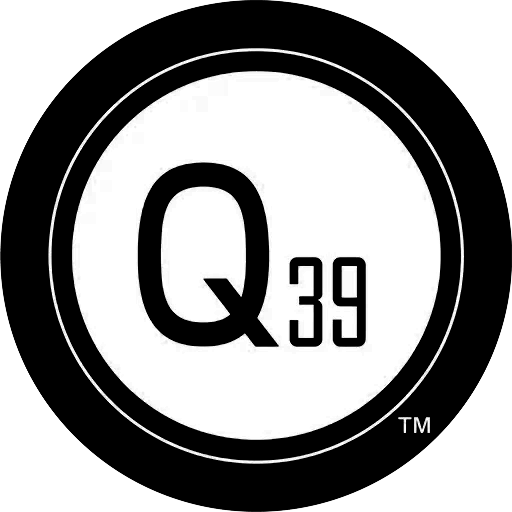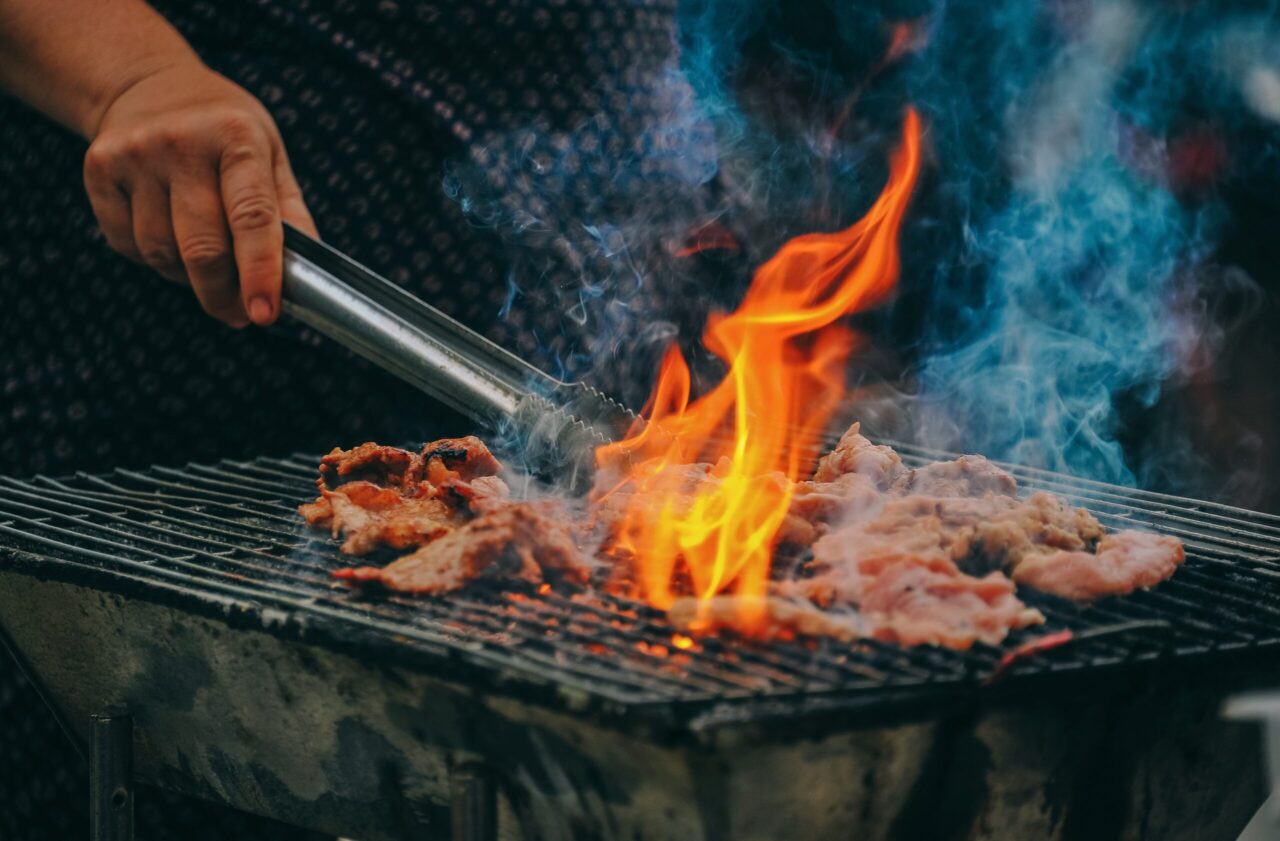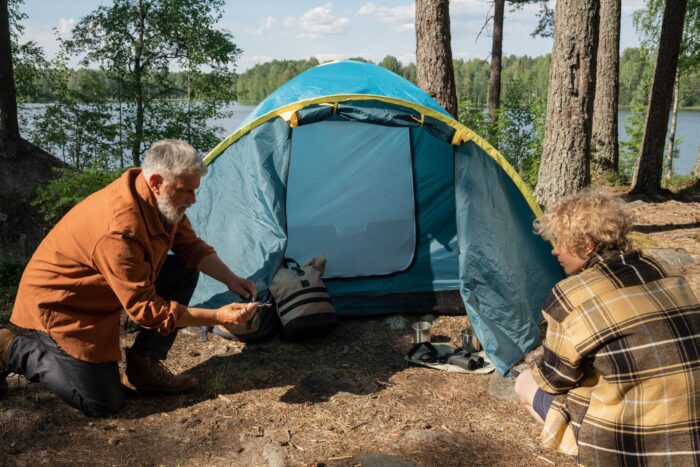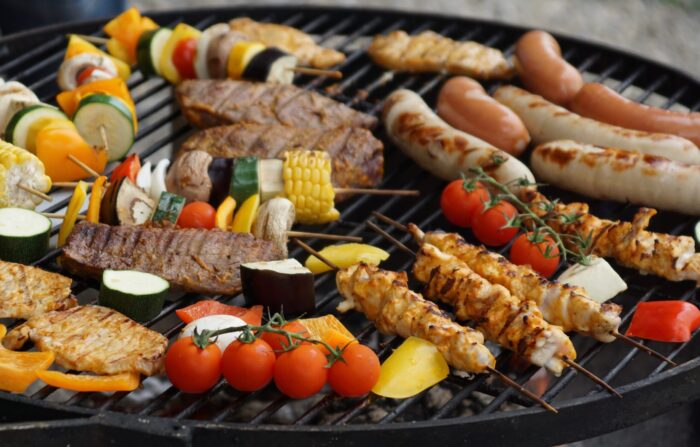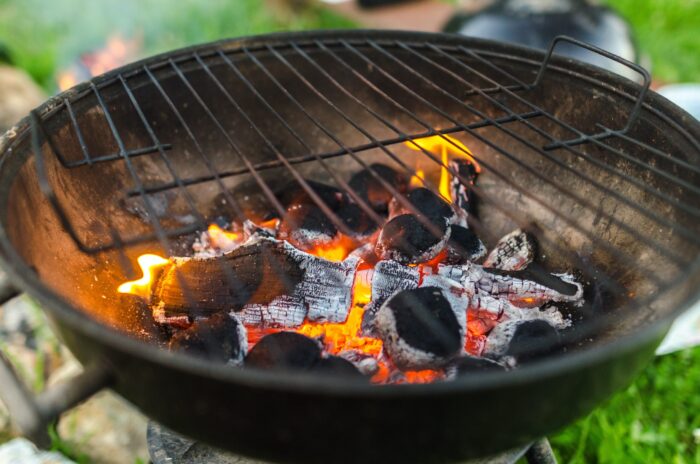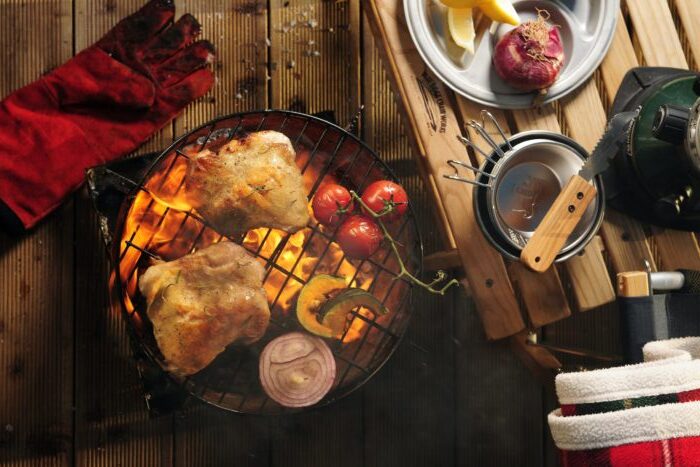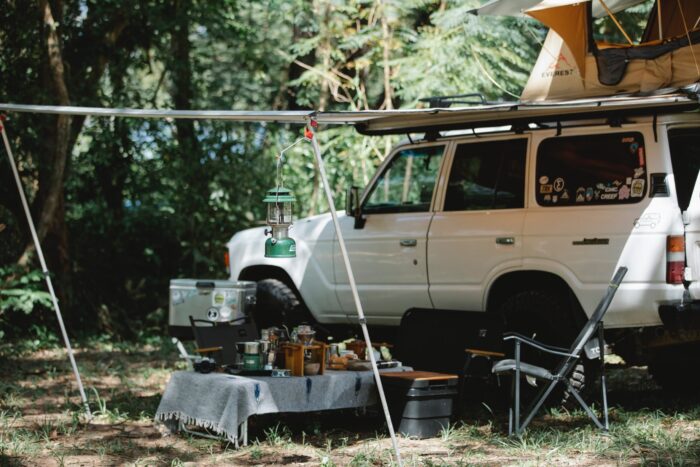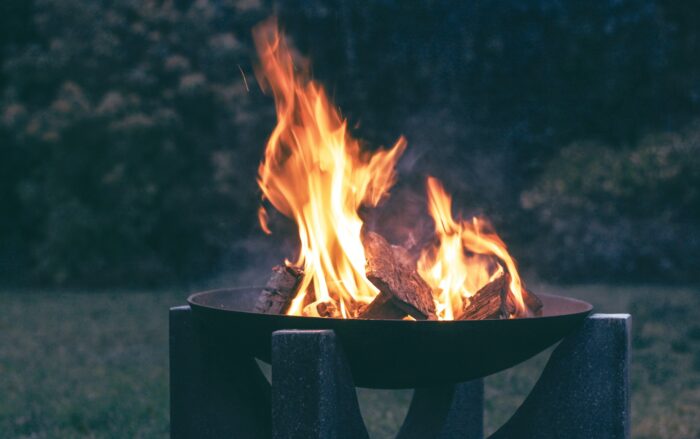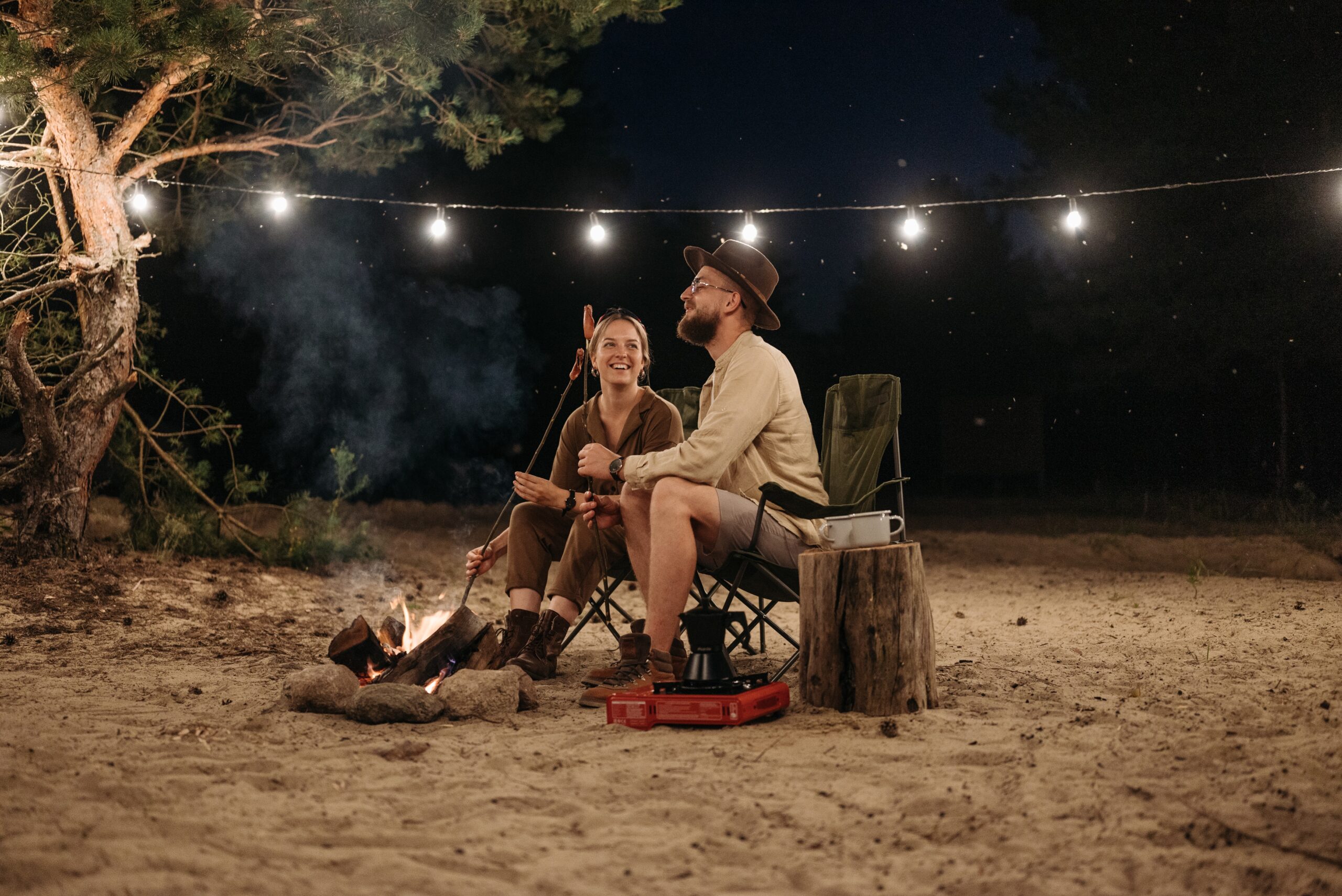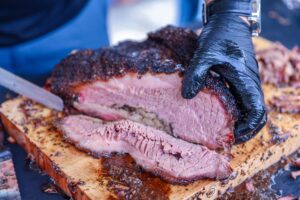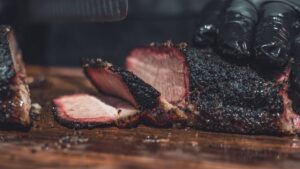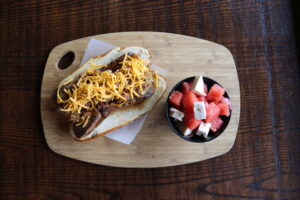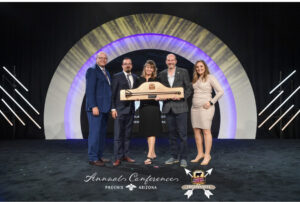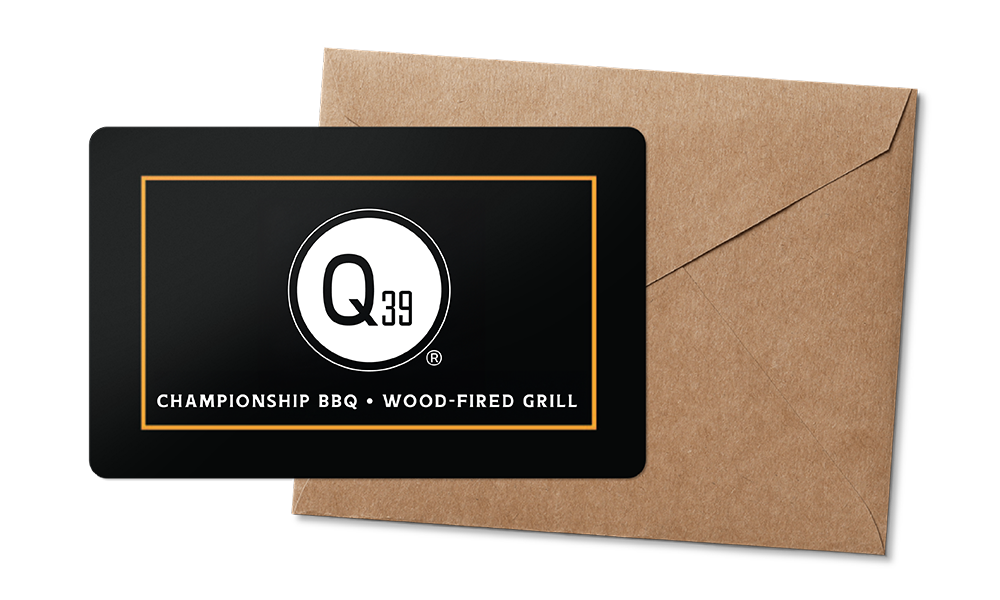There’s nothing quite like the crisp outdoor air at a campsite. From hiking through the morning dew to roasting smokey marshmallows by the campfire, getting back to nature is one of America’s favorite pastimes. When you’re off-grid at the campsite, one of the best things to do is cook a meal over the fire. Next time you are headed out on a camping trip, skip the jerky and trail mix and try something a little more adventurous – campfire BBQ. To help you indulge in sweet and smokey camping BBQ while spending time outdoors with friends and family, we’ve put together our ultimate outdoor cooking guide to unleash your inner outdoor chef this camping season.
Planning and Preparation for Campfire BBQ
We all know the feeling of showing up at the campsite and realizing that you’ve forgotten something important. Whether it’s your favorite hammock pillow or a trusty fire starter, pre-planning and preparation are crucial to make the best campsite BBQ.
Menu Selection
Great BBQ takes time. Before you even begin packing, take time to make a menu for your meal. The first step is choosing your BBQ meat, and knowing how long you will need to cook it over the fire.
- Brisket: Brisket is a tough cut of meat, so it needs to be cooked low and slow. As a general rule, smoked brisket takes about 1.5-2 hours per pound. Once the brisket is cooked, let it rest for at least 30 minutes before slicing.
- Pulled pork: Similar to brisket, pulled pork is another tough cut of meat that takes extra time and care to retain its juices. Pulled pork takes about 1-1.5 hours per pound to properly cook.
- Ribs: One of the most classic choices for an outdoor BBQ, ribs will take 2-3 hours to become fall-off-the-bone tender.
- Chicken: Whole chicken takes 1-1.5 hours to roast, and smaller cuts take just 10-25 minutes.
- Turkey: Roast turkey requires 24 hours or more of brining and about 1-1.5 hours per pound to roast.
- Sausage: Sausage is the quickest and easiest BBQ meat to cook. Grilled sausage takes just 15-20 minutes to cook properly.
Once you’ve chosen your meat, be sure to plan for your sides. Classic BBQ baked beans, pasta salads and coleslaws can be prepared at home and finished at the campsite quickly. At Q39, we love our sides. From our tart green apple slaw to classic grilled vegetables, we think the sides might be just as important as the main course, so don’t forget to plan past the meat.
Marinating in Advance
Marinating is a non-negotiable step in creating delicious BBQ. Marinades infuse meat with a variety of flavors, from sweet and tangy to smoky and spicy. The acids, sugars, and spices in marinades break down tough muscle fibers in the meat, making it more tender and flavorful. Typically, marinades contain water and oil, which can help to prevent the meat from drying out.
There are endless choices you can make for creating a mouth-watering marinade. At Q39, our rubs, spices and sauces are the perfect ingredients for your marinade whether you are making a smokey chili marinate or a sweet and citrusy marinade. Here are some of our favorite products to mix into a marinade:
- Classic BBQ Sauce
- Honey BBQ Glaze
- Chipotle Cilantro BBQ Sauce
- Pork Rub
- Brisket Rub
- Classic Steak Seasoning
Marinades take time to break down into the meat, often up to 24 hours. When you are marinading your BBQ meats for camping, be sure to use a food-safe air-tight container to prevent the marinade from evaporating, leaking or getting contaminated. Your container should be big enough to fit your meat and ensure that the marinade evenly coats all sides. When you are traveling with raw meats, it is important to store them properly, so they don’t go bad or contaminate your other foods.
If marinading at the campsite, pack meat and marinade in separate containers. Keep the meat and marinade cold during transport. Lay down kitchen towels between the ice and your containers to ensure an even cooling temperature on your food. As a general rule, do not marinate the meat for longer than 24 hours before cooking, and don’t let raw meat sit out. Cook the meat immediately after taking it out of the marinade.
Prep Work at Home
Prep work doesn’t stop at the marinade, make your camping trip easy by doing your kitchen prep work at home! Chop vegetables, prepare your seasonings and make your sides ahead of time so you can enjoy your trip. Always use air-tight containers and bags to make sure your ingredients are easy to transport and stay fresh while you make your drive to the campsite.
Pro Tip: label your containers so there is no guessing when it’s time to eat!
Essential Camping Equipment and Tools for BBQ
While primitive cooking can be rewarding, BBQing is much easier when you have the proper tools.
Portable Grill
The most important part of cooking is the heat source. Portable camping grills from reputable brands like Coleman, Weber and Cuisinart will maintain precise temperatures and proper ventilation. When choosing your portable grill, make sure it is big enough to fit your BBQ meats, is easy to set up and has the proper safety features to avoid potential fire hazards at the campsite. Some grills even come with built in cutting boards and prep tables to give you a handy area to set up your serving platter and sides.
If you are looking for a new portable camping grill, check out The Spruce Eats recommendations for the best portable gas grills in the industry.
Charcoal and Fire Starters
When you’re camping, it’s important to pack enough charcoal and reliable fire starters to ensure that you have a consistent heat source for cooking delicious BBQ. Charcoal is the most popular choice for camping because it burns hot and evenly, and it can be easily transported and stored. However, not all charcoal is created equal. Some types of charcoal are quick-burning and low-quality, which can lead to inconsistent cooking results.
- Lump Charcoal (right): Made from pure wood, lump charcoal is the highest quality fire source and the source we recommend for BBQing on a potable camping grill.
- Briquettes (left): Made from a mixture of wood, coal and other additives, charcoal briquettes are easy to organize in the grill, but often burn quicker than lump charcoal, requiring more maintenance
- Natural or Eco-Friendly Charcoal: Charcoal with these labels are more sustainably sourced and do not contain certain potentially dangerous chemicals
- Quick-Lighting: These charcoals are often treated with chemicals that can give food a distinct unintended added flavor
In addition to charcoal, you’ll need to pack some reliable fire starters. It’s important to choose fire starters that are eco-friendly and that will not produce a lot of smoke. Some popular camping fire starters include:
- Newspaper
- Kindling
- Dry leaves
- Wood shavings
- Firelighters (wax-coated wood shavings)
Grilling Utensils
It may not be a professional kitchen, but that doesn’t mean you can’t BBQ at the campsite like a professional! Be sure to pack all the necessary utensils you need for prepping, grilling, serving and cleaning.
- Tongs
- Spatula
- Grill Brush
- Meat Thermometer
- Baster
- Resting Racks
Aluminum Foil
The holy grail of BBQ cooking, aluminum foil is a must-pack tool when planning for a camping BBQ. Aluminum foil is used to:
- Allow BBQ meat time to rest and absorb juices. After cooking meat on the grill, wrap it in foil and let it rest for 10-15 minutes before carving. This will allow the juices to redistribute throughout the meat, resulting in a more tender and flavorful dish.
- Cook delicate foods, vegetables or fish evenly. Perfect for making side dishes, aluminum foil can be used to create a makeshift “oven” for cooking delicate foods that can easily fall apart like fish or vegetables. Simply place the food in a piece of foil, add a little oil or butter and seal the packet tightly. Then, cook the packet over the fire or on the grill until the food is cooked through.
- Minimize dishwashing. Foil can be used to cook food directly on the grill or campfire, which means that there is no need to wash dishes afterwards. This is a great way to save time, water and waste when you’re camping.
Leftover Packaging
If you do it right, you won’t have anything left over to take home with you, but if you do, be sure to pack plenty of clean, air-tight containers for your leftovers. Pack them back in the cooler for your drive home and immediately store them in the fridge for future meals. Once you’ve stored them away, checkout our complete guide to BBQ leftovers to get the most out of your BBQ.
Campsite Safety and Cleanup
When you are at the campsite, safety and environmental care are always top priorities. As you plan your campsite BBQ, be sure to define a safe fire and grilling area, bring the proper fire extinguishing equipment in case of emergency, bring the necessary cleaning tools and have a plan for disposing of your waste.
Safe Fire Area
Fire areas should always be clear of flammable objects including trees, overhanging branches, bushes, dry grass patches, debris piles, hammocks, chairs, tents and trash bins. If your campsite doesn’t already have a fire pit area, be sure to check with the guard stand attendants to know if you can start an open fire. If you are allowed to, create a ring made of stones, bricks and other non-flammable materials at least 3-feet wide to help contain the fire. Portable grills should be treated similarly, staying out of reach of any potential flammable hazards.
If you are building a fire or setting up a portable grill at a campsite, make sure you know the campsite’s rules and the location of the nearest emergency services in case of emergency.
Extinguishing Equipment
Fires can be dangerous if uncontrolled. If you are using fire for your campsite BBQ, you need to have the proper extinguishing equipment for when you are done. Here are some ways to safely put out a campfire once you are done using it:
- Fires will naturally die out if they don’t have a fuel source. After several hours, flames will burn down to coals and embers. It may take even longer for the embers to become cool to the touch, so be patient.
- Spread the coals out with a non-flammable shovel or rake to help cool coals and embers down.
- Drench the coals and surrounding area with water or sand. This extinguishes the flames and reduces its access to additional fuel sources. Stir the water or sand and coals until they are completely wet or covered. This will help to ensure that all of the embers are extinguished.
- Check the campfire area again to make sure that it is completely cool. You can do this by feeling the coals and surrounding area with your hand. If it is still warm, repeat the same steps.
Fire safety is essential to keep people, wildlife and our natural environments safe. If you are planning to build a campfire:
- Never leave a campfire unattended.
- Make sure that the campfire is completely extinguished before you go to bed or leave the campsite.
- If you are camping in an area that is prone to wildfires, be sure to check with the local authorities for fire restrictions.
Proper Cleanup
To make sure your grill works just as well for your next BBQ, be sure to clean it properly after each use. Allow the grill to cool completely before cleaning. Use a grill brush to remove debris from the grates, wipe down the interior and exterior of the grill to prevent dirt and rust build-up and dispose of any drip pans or cooking waste that may be left in the grill. Do not pack up the grill until it has completely cooled and been properly cleaned according to the grill’s user manual.
Before you dispose of charcoal ash and debris, be sure to let it cool completely. Many campsites provide ash and charcoal disposal containers on the campgrounds. Place your ashes in a metal container or aluminum pan before transferring it to the disposal container. If your campsite doesn’t have a disposal container, put a tight-sealing lid on the container to prevent the ashes from blowing away or potentially starting a fire. Dispose of the container when you have made it back home
Waste Disposal – Leave no trace
When we are in nature, it is important to protect the environment around us. At campsites, you should aim to leave no trace behind you. After your camping BBQ, be sure to thoroughly pick up your campsite using trash bags to pack out all of your waste including leftover food scraps, packaging and equipment. We all have a responsibility to take care of our environment.
Happy BBQ Camping!
Connecting with the outdoors is a wonderful way to recenter yourself, spend quality time with friends and family and try your hand and making mouth-watering campfire BBQ. By marinading your meat ahead of time, prepping your meal at home, using the proper tools and equipment, thoroughly cleaning your campsite and using fire safety techniques, you can have the perfect BBQ camping trip.
This fall unleash your inner outdoor chef at the campsite and share your favorite camping BBQ recipes, tips and photos with us on Facebook, Twitter, Instagram and TikTok.

